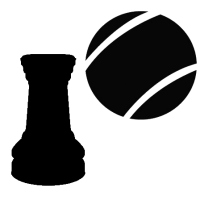Sjatranj
Sjatranj is a Hesjbagaaian game commonly called Fours or the Game of Fours in many other languages. It is played by 2 to 4 players on a board with four square sections. Similar games were known to have been played in ancient times, but fell out of favour due to their complexity, only being played in parts of Munatan. The modern game became more popular since 10th century BME, and is now played throughout the Civilised Worldplugin-autotooltip__small plugin-autotooltip_bigCivilised World
The Civilised World refers to the known regions of human civilisation, notably the continent of Anásthias, the Natorn Archipelago and surrounding islands.
Gastrinimer's 3rd century BME Map of the World, showing Anásthias and the Natorn Isles. Note: old maps place north to the right.AnásthiasAnásthiasAnásthiasAnásthias.
Sportsplugin-autotooltip__small plugin-autotooltip_bigGames & Sports
List of articles related to games, sports and sporting events.
topics cult1
 This is in a series of articles on Games and Sportsplugin-autotooltip__small plugin-autotooltip_bigGames & Sports
This is in a series of articles on Games and Sportsplugin-autotooltip__small plugin-autotooltip_bigGames & Sports
List of articles related to games, sports and sporting events.
topics cult1.
The word possibly derives from “kwatran”, an Ancient Ahngrit word meaning four.
Gameplay
The modern game board has four quadrants of 5×5, separated by a cross-shaped area called the “river”. Each player chooses one quadrant to start in.
Each quadrant has eight pieces: 5 guards, 2 chancellors and 2 champions, plus a king-piece (or emperor). Standard pieces are cuboid, with colours on three sides (for each player, plus neutral), the other three panels being symbols or carvings representing the type of piece.
In the first phase of the game, the king has control of only one quadrant. Initially only the counsellors can move anywhere on the board, with guards only able to cross the river by a “bridge”. A bridges is formed by two guards on either side of a river, however, only champions can cross the water. created by two champions, ie they can only cross a square either side of a champion.
The unclaimed quadrants have one chancellor, two champions, and seven guards. Initially neutral, until a player is able to take out the neutral chancellors, or the king enters the quadrant. Thereafter, all neutral pieces in that quadrant belong to the player.
The object of the game is to kill the opponent's king. In the long version of the game, if any chancellors remain after the king is killed, they can become king if “castled” by at least one Champion. Guards can also be promoted to Champions by reaching the opposite side of the board from starting, or from killing a King.
Abilities: chancellors can convert guards and champions Champions: can take any piece, and can be taken by another champion. They must be surrounded by at least two guards to be taken.

